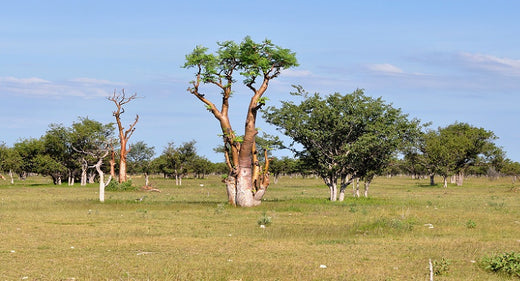The moringa oleifera, also called the horseradish tree, is a tree native to the India, Pakistan, and Bangladesh region, but is now all over the world. Traditional societies with stronger connections to the planet's plant life have used it for various ailments.
While few Western placebo controlled, peer reviewed randomized clinical trials have been conducted on its health properties, thousands have testified to its effectiveness. Researchers from numerous African, Asian, and South American countries have tested it. This is what they found.
Moringa's Nutritional Value
The Trees for Life organisation declared sometime ago that, "ounce-for-ounce, Moringa leaves contain more Vitamin A than carrots, more calcium than milk, more iron than spinach, more Vitamin C than oranges, and more potassium than bananas." It is now known that it contains substantially more of these nutrients than these food types, and that it also contains more protein than milk and more vitamin E than almonds. Altogether, it has over 90 nutrients and thus makes a good multi-vitamin and mineral supplement that beats almost all foods you eat on the nutritional scale.
Moringa's Anti-Bacterial Properties
Through the testing of bacteria and moringa in the laboratory, many researchers have found that it is anti-bacterial due to an ingredient called benzyl isothiocyanate. It has been tested against several common bacteria and fungi and found to have the ability to destroy many of them or at least to neutralise their harmful effects.
The bacteria against which it has been proved to be effective include Helicobacter Pylori, a particularly nasty bacterium in the human digestive tract that often settles in the stomach lining where it causes inflammation, ulcers, and ultimately stomach cancer. In particular, it seems to inhibit the acid that Helicobacter Pylori emits, which is the primary cause of the inflammation and cancer of the stomach lining.
Moringa's Anti-Cancer Properties
As no placebo controlled, randomized clinical trials have been conducted on humans, this is certainly no reason to abandon all other forms of cancer treatment in favour of a moringa supplement. Still, in laboratory observations and animal studies with appropriate controls, researchers have discovered that it acts against skin tumours, leukaemia, ovarian cancer, and some others, primarily by inhibiting the growth of cancer cells. Scientifically controlled studies on human beings are clearly overdue!
Moringa for Liver Support
In a study on rats, authors in a 2008 edition of the journal Plant Archives concluded that moringa was effective against acute alcohol-induced damage to liver cells. After giving the rats a moringa extract, their cholesterol, triglycerides, phospholipids and free fatty acid levels returned to normal, showing that the damaged liver cells had started functioning again. Whether it has a positive effect on healthy livers is not known. Moreover, the authors used an alcohol extract, which is probably substantially different from the powder in moringa supplement capsules. The positive conclusion was not the first of its kind, however. Years earlier, another research team established that it could repair liver cells damaged by paracetamol. If you are taking regular medication, you may want to try it to prevent the damage that synthetic drugs tend to do to your liver.
Moringa's Anti-Inflammatory Properties
Moringa may also be an anti-inflammatory, but without studies on humans, we cannot know this beyond doubt. Animal studies are certainly promising. One study on the extract from the moringa root established that it could combat inflammation in rats, and another on the extract of the leaves found that it suppressed rats' inflammation as well as Ibuprofen does within only one hour of the injection. Water for Health's moringa supplement is taken from the leaves, but it is taken orally, rather than via an injection. Still, the studies' conclusions are promising, especially since users of the supplement consume it every day, rather than only on occasion. Modern medicine has linked chronic inflammation with a wide variety of diseases, including arthritis, cardiovascular disease, diabetes, obesity, and several serious digestive complaints. In this way, a daily dose of moringa holds incredible promise to tackle some serious and potentially fatal conditions.
Moringa to Lower Cholesterol
In response to the discovery that many doctors in India prescribed moringa leaf to lower cholesterol in obese patients, researchers at the University of Nigeria decided to test its effects in 2000. They determined that rats fed on a high-fat diet and moringa leaf had a 14.35 per cent lower increase in cholesterol than rats on the same diet that were not given moringa. They tested cholesterol levels specifically in the blood, the kidneys, and the liver. This means that moringa cannot stop the increase in cholesterol when rats are fed a high-fat diet, but it can limit the damage. A 2003 study confirmed, not only that moringa could lower cholesterol (this time in rabbits), but that it could lower it in the heart and aorta too. Those people who used to eat unhealthy food may try it to lower their cholesterol. After all, if it is relatively effective to limiting the damage in the presence of a high-fat diet, it may be even more effective in people who currently eat mostly healthy food.




























Leave a comment